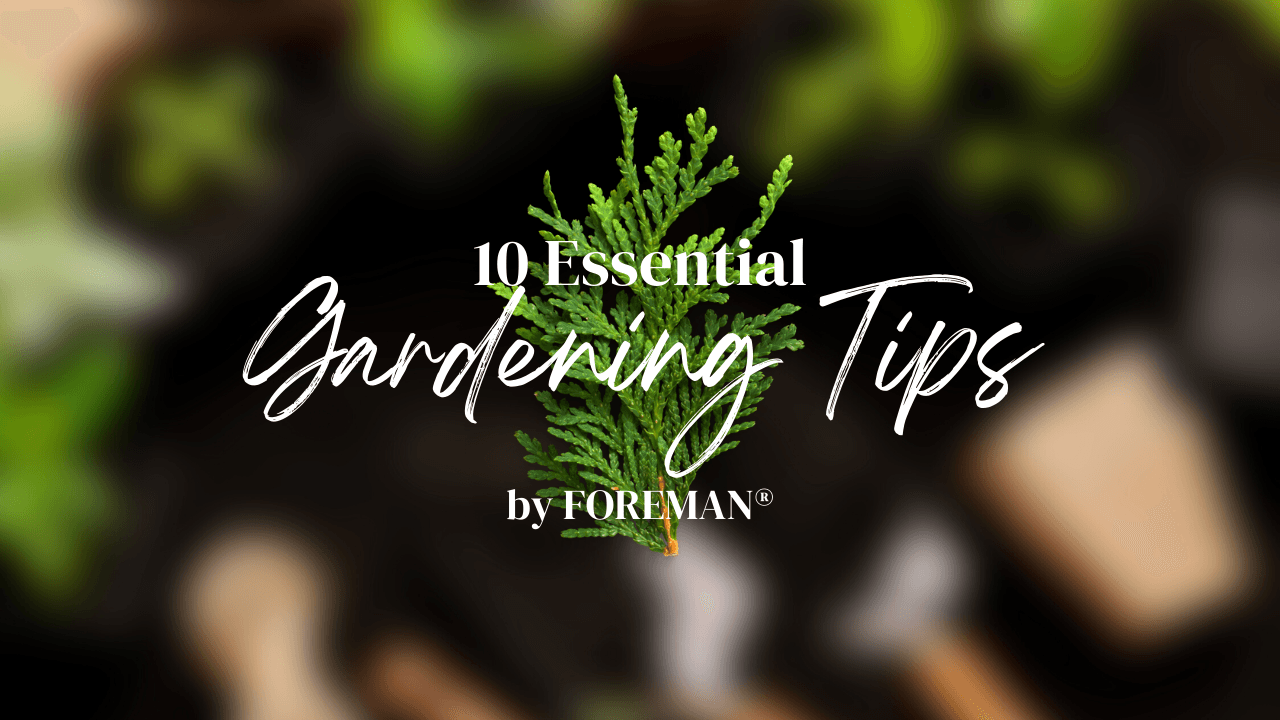Gardening is not just a hobby; it's a labor of love that rewards us with the beauty of nature and the joy of nurturing life. To help you achieve a garden that's lush, vibrant, and full of life, we've compiled a list of essential gardening tips. Whether you're a seasoned gardener or just starting out, these tips will serve as your green thumb's guide to success.
Tip #1: Know Your Zone
Understanding your USDA hardiness zone is the foundation of successful gardening. Different plants thrive in different climates, and knowing your zone will help you choose the right plants that are best suited for your location. This knowledge ensures that your garden will flourish year-round.
Tip #2: Soil Health Matters
The key to a thriving garden lies in the soil. Invest in good-quality soil that is rich in organic matter, well-draining, and with the right pH levels for your chosen plants. Regularly amend your soil with compost to improve its fertility and structure.
Tip #3: Choose the Right Plants
Selecting the right plants for your garden is crucial. Consider factors like sunlight, water requirements, and the plant's mature size. Opt for native plants whenever possible, as they are adapted to your local conditions and require less maintenance.
Tip #4: Water Wisely
Watering is one of the most critical aspects of gardening. To avoid overwatering or underwatering, pay attention to your plant's specific needs. Water deeply and infrequently to encourage strong root growth, and use a soaker hose or drip irrigation system to keep water at the root zone.
Tip #5: Mulch for Moisture and Weeds
Mulch is your garden's best friend. A layer of organic mulch helps retain soil moisture, suppress weeds, and regulate soil temperature. It also adds a polished look to your garden beds. Be sure to replenish the mulch as it decomposes.
Tip #6: Pruning and Deadheading
Regular pruning and deadheading are essential for maintaining the health and appearance of your garden. Remove dead or damaged growth and spent flowers to encourage new blooms and a well-groomed garden.
Tip #7: Companion Planting
Companion planting is a gardening strategy where certain plants are grown together to benefit each other. For example, planting marigolds near your vegetables can deter pests, while beans can provide nitrogen to neighboring plants. Explore companion planting to improve the overall health of your garden.
Tip #8: Pest and Disease Management
Stay vigilant against garden pests and diseases. Use natural remedies and beneficial insects whenever possible to maintain a healthy ecosystem. If necessary, resort to chemical treatments as a last resort, always following safe practices.
Tip #9: Gardening Tools and Maintenance
Invest in quality gardening tools and keep them well-maintained. Sharp pruners, a sturdy shovel, and a weeding tool will make your gardening tasks more efficient. Regularly clean and sanitize your tools to prevent the spread of diseases.
Tip #10: Patience and Enjoyment
Gardening is a journey, not a destination. Be patient and enjoy every moment in your garden. Experiment with new plant varieties, observe the changing seasons, and celebrate the small victories. Gardening is not just about the final result; it's about the experience.
Conclusion
With these essential gardening tips, you're well on your way to creating a garden that flourishes and brings you joy. Remember, every garden is unique, and with dedication and care, you can turn your outdoor space into a paradise of greenery and beauty. Happy gardening!

